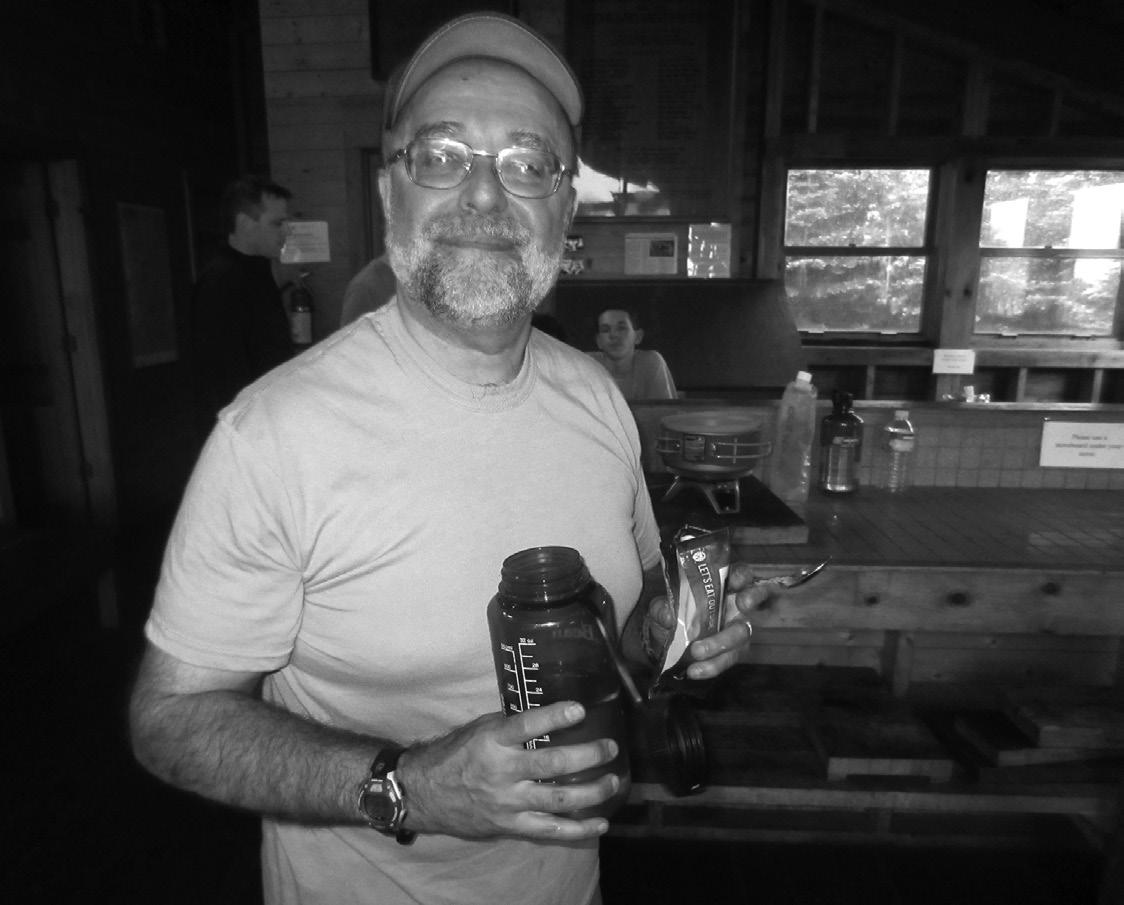
2 minute read
Thomas Andrew, MD, a renowned forensic pathologist, has witnessed the high cost of addiction, and he wants to see people set free.
Student Spotlight: Thomas Andrew

Crag Camp in the White Mountains.
(Courtesy of Thomas Andrew)

Thomas demonstrates testing a rope and stave lashing.
(Courtesy of Thomas Andrew)
Thomas Andrew, MD, a renowned forensic pathologist, has witnessed the high cost of addiction, and he wants to see people set free.
For 20 years, Thomas Andrew, MD, served as Chief Medical Examiner for the State of New Hampshire. During that time, he witnessed an increase of nearly 1,000 percent in the number of drug-related deaths as the opioid crisis took hold across the United States. He was responsible for counting the costs of an epidemic of addiction, and he knew it was far too high. The opioid crisis brought into sharper focus for Thomas the need for action — for ministry.
In addition to his work as a forensic pathologist, Thomas has long been involved in the Boy Scouts of America (BSA), where he regularly encounters at-risk youth. He began to sense a call to chaplaincy through the BSA, where he could serve, not at the end of the public health spectrum, but at the very beginning: in prevention.
Today Thomas is pursuing a path to ministry as a deacon in The United Methodist Church. He is currently preparing to enter his fifth semester in United’s Master of Divinity (MDiv) program.
“United’s approach and philosophy is in line with the way I understand Wesleyan theology and its application in the real world,” Thomas says. “When I looked at the possibility of an online MDiv and saw the immense flexibility that United offered, it was a no-brainer for me.”
Encountering different cultural backgrounds and denominational viewpoints within the Christian faith at United has also been valuable to Thomas’s work within the interfaith environment of scouting. Thomas serves as chair of the Duty to God Committee (which focuses on reverence, the 12th point of scout law) of the Daniel
Webster Council of the BSA. This diverse group consists of Roman Catholic, Greek Orthodox and Protestant Christians, as well as Muslim, Hindu and Buddhist members.
Thomas is also pursuing chaplaincy ministry along the Appalachian Trail, which extends 2,190 miles from Springer Mountain, Georgia, to Mount Katahdin, Maine. Recognizing that motivations for those hiking the Appalachian Trail include spiritual emptiness, personal crises and addiction, Thomas hopes to provide spiritual support to hikers traveling the segment of the trail that runs through his home state of New Hampshire: “A chaplaincy presence on the trail could help set those people free.”
As he continues to follow God’s call, Thomas draws strength from Galatians 2:20: “I have been crucified with Christ and I no longer live, but Christ lives in me. The life I live in the body, I live by faith in the Son of God, who loved me and gave himself for me.” It reminds him that the ends of ministry are far bigger than the individual carrying it out. “We are,” he says, “part of something far greater than ourselves.”
Thomas Andrew, MD, retired from the New Hampshire Department of Justice in September 2017. He now runs White Mountain Forensic Consultancy Services in Concord, NH.




